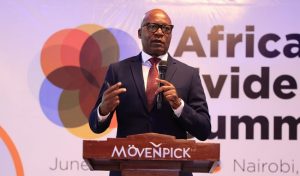Evidence-informed policies are what Africa needs to improve people’s lives, experts meeting in Nairobi for the 11th Africa Evidence Summit on evidence-informed policy governance said.

According to experts at the meeting and drawn from worldwide, governments will begin setting the right development priorities, design cost-effective interventions, and enhance program implementation when using research evidence.
“Academic institutions are a valuable reservoir of innovation and knowledge as they research complex issues. However, due to various bottlenecks, the evidence they produce does not reach the tables of policymakers, who are often under pressure to make development decisions quickly. Bridging the gaps between research, policy, and practice can help policymakers access the latest research and insights to make better decisions and improve people’s lives,” said Dr Eliya Zulu, the founder and executive director of the African Institute of Development Policy.
He said academic institutions and researchers need to understand the evidence needs of decision-makers better and communicate their research effectively to ensure policymakers understand the evidence, which informs their decisions.
According to him, local academics should no longer sit on the fence and point fingers at government failures but be actively involved in public policy discourses so they serve as strategic agents of the transformation we all want to see in Africa’s development.
“Practical, context-specific and transparent causal research is instrumental to policymakers,” said Dr Amos Njuguna, Dean of the School of Graduate Studies, Research and Extension at the United States International University-Africa and a founding member of NIERA.
He added that as the continent seeks inclusive and sustainable development, there is also evidence of the high demand for African researchers with skills like impact evaluation methodology.
“A central component of CEGA’s approach to improving lives has been to advance the scholarship of African researchers and to collaborate on creating locally-led development solutions,” said Dr Edward Miguel, Faculty Co-Director of CEGA and Professor of Economics at UC Berkeley. “I hope that the Summit can serve as a platform for African scholars to increase the impact of their research.”
The Africa Evidence Summit is an annual in-person gathering that brings together East and West African scholars, U.S.-based faculty, and global policymakers and practitioners to discuss the latest research findings on economic development and poverty alleviation. The Summit promotes new ways to integrate evidence into decision-making, elevates African scholarship, and seeds new South-South and North-South collaborations.
Organised by the Network of Impact Evaluation Researchers in Africa (NIERA), an association of African scholars that advances decision-focused impact evaluation of development programmes, and the Centre for Effective Global Action (CEGA), a research hub at UC Berkeley that generates innovative evidence decision-makers use to reduce global poverty, this year’s Summit covered topics of paramount importance to African leaders, including health and resiliency, growth and inequality, and making evidence more inclusive and beneficial for policymakers.
This year’s Summit brought together an array of researchers and organisations working to alleviate poverty in Africa, including the African Economic Research Consortium (AERC), the African Institute for Development Policy (AFIDEP), Afrobarometer, Busara, the Global Poverty Research Lab (GPRL), the United States Agency for International Development (USAID), and the William and Flora Hewlett Foundation.
